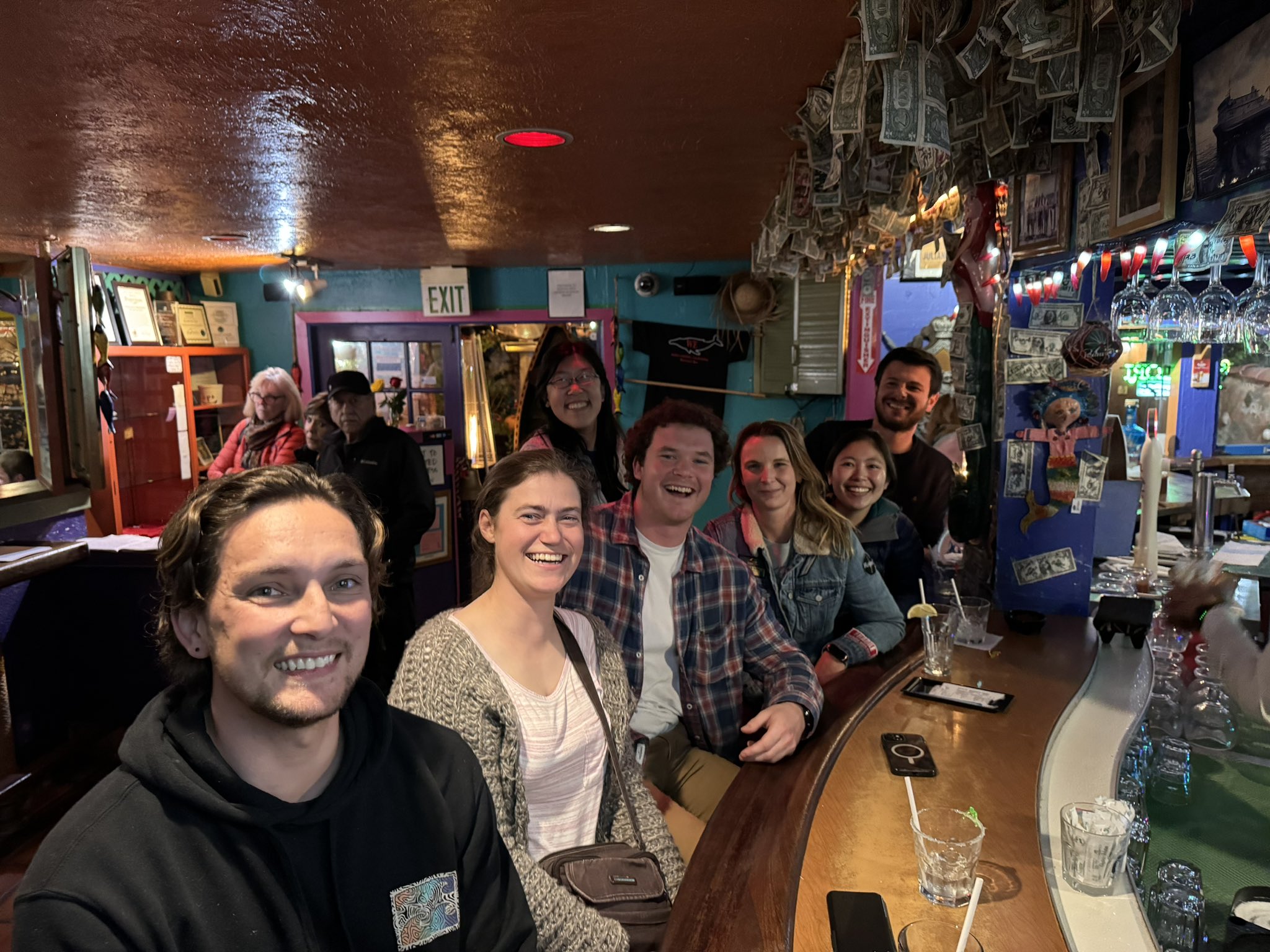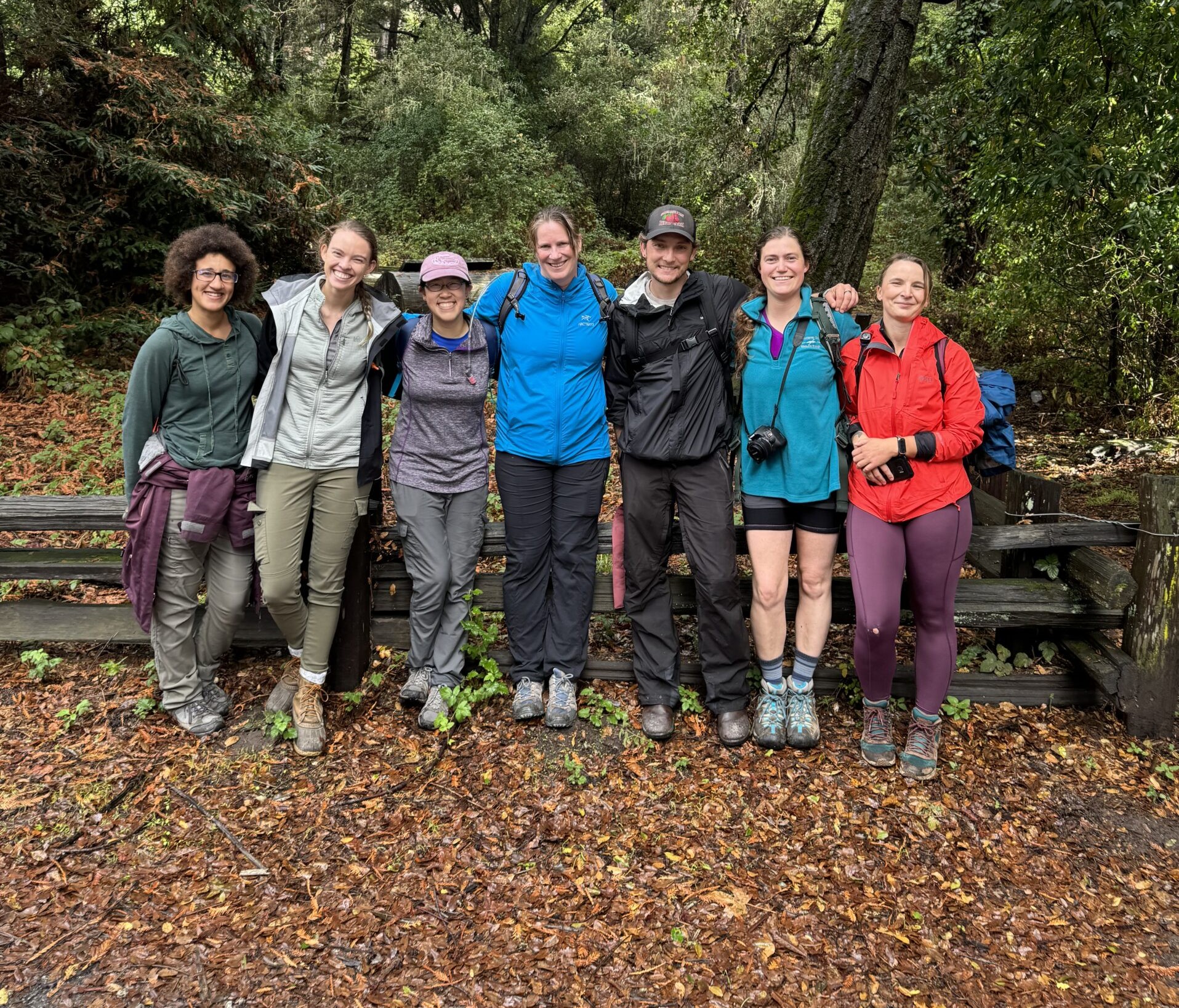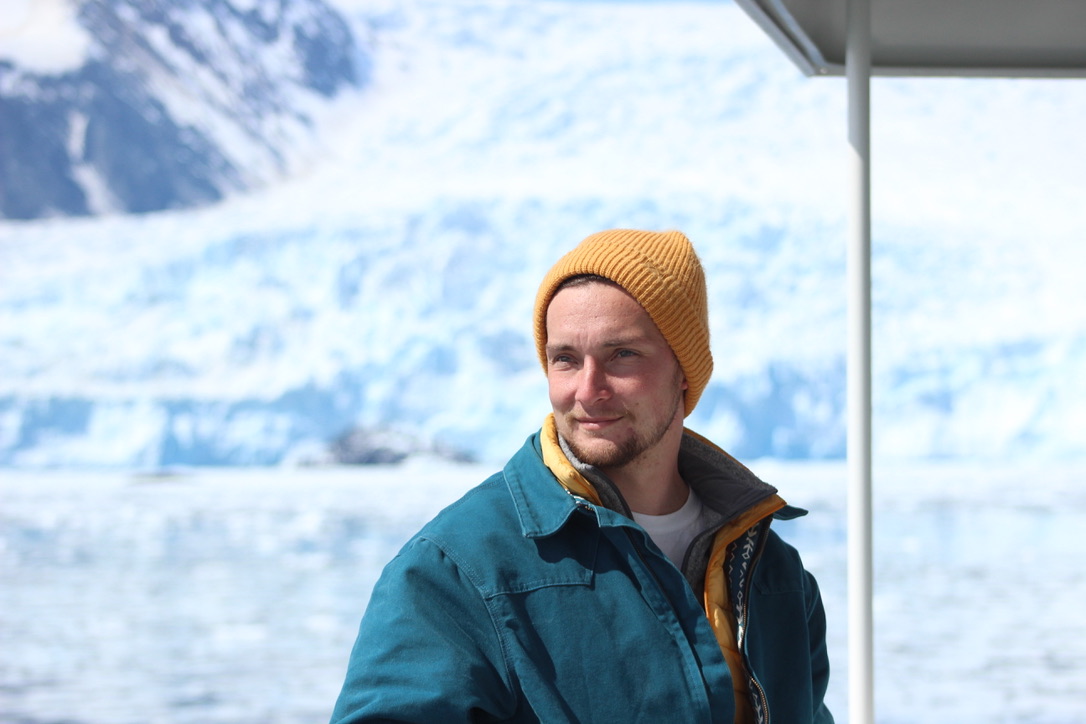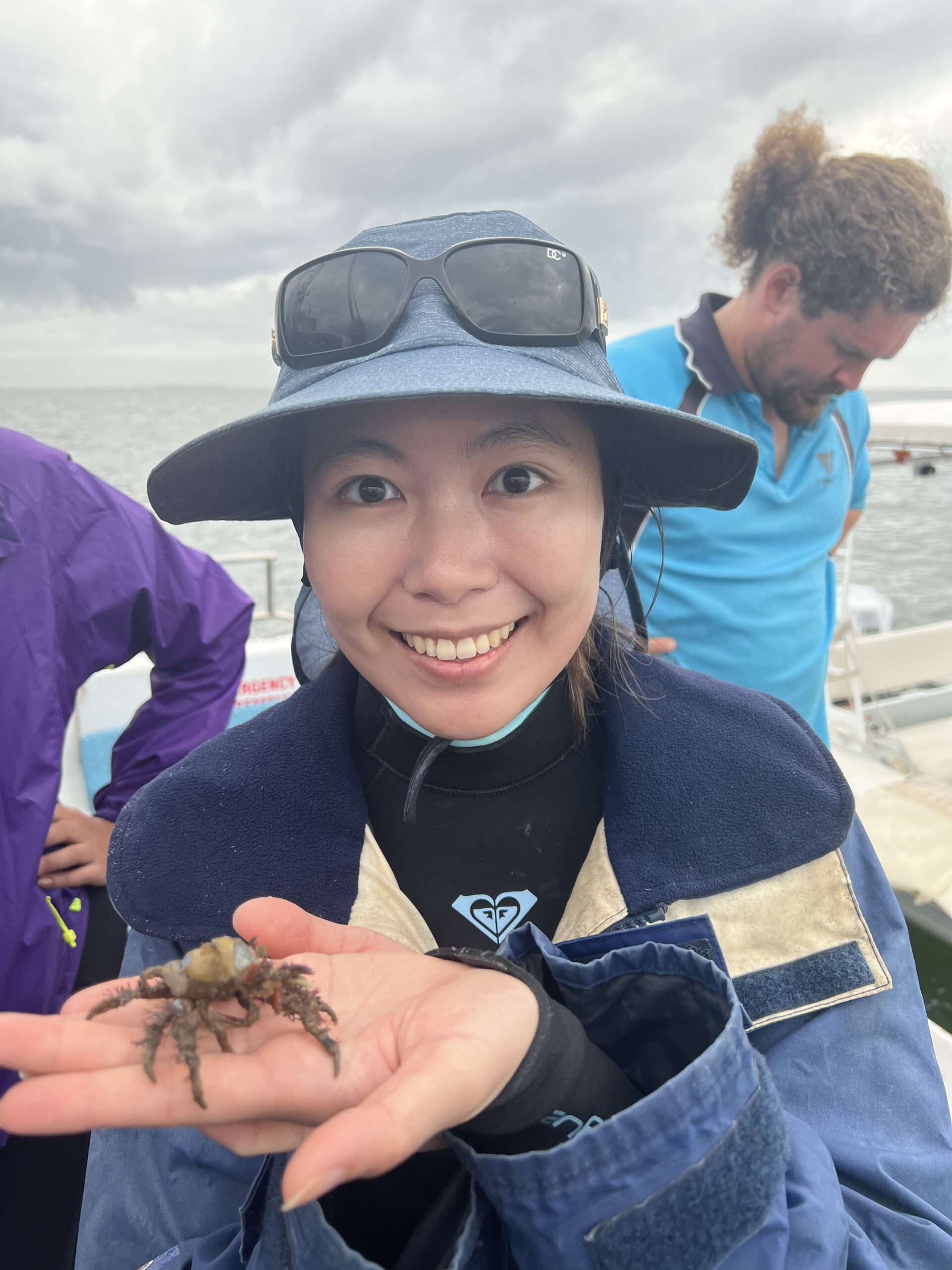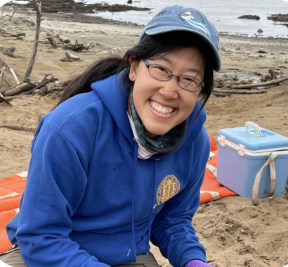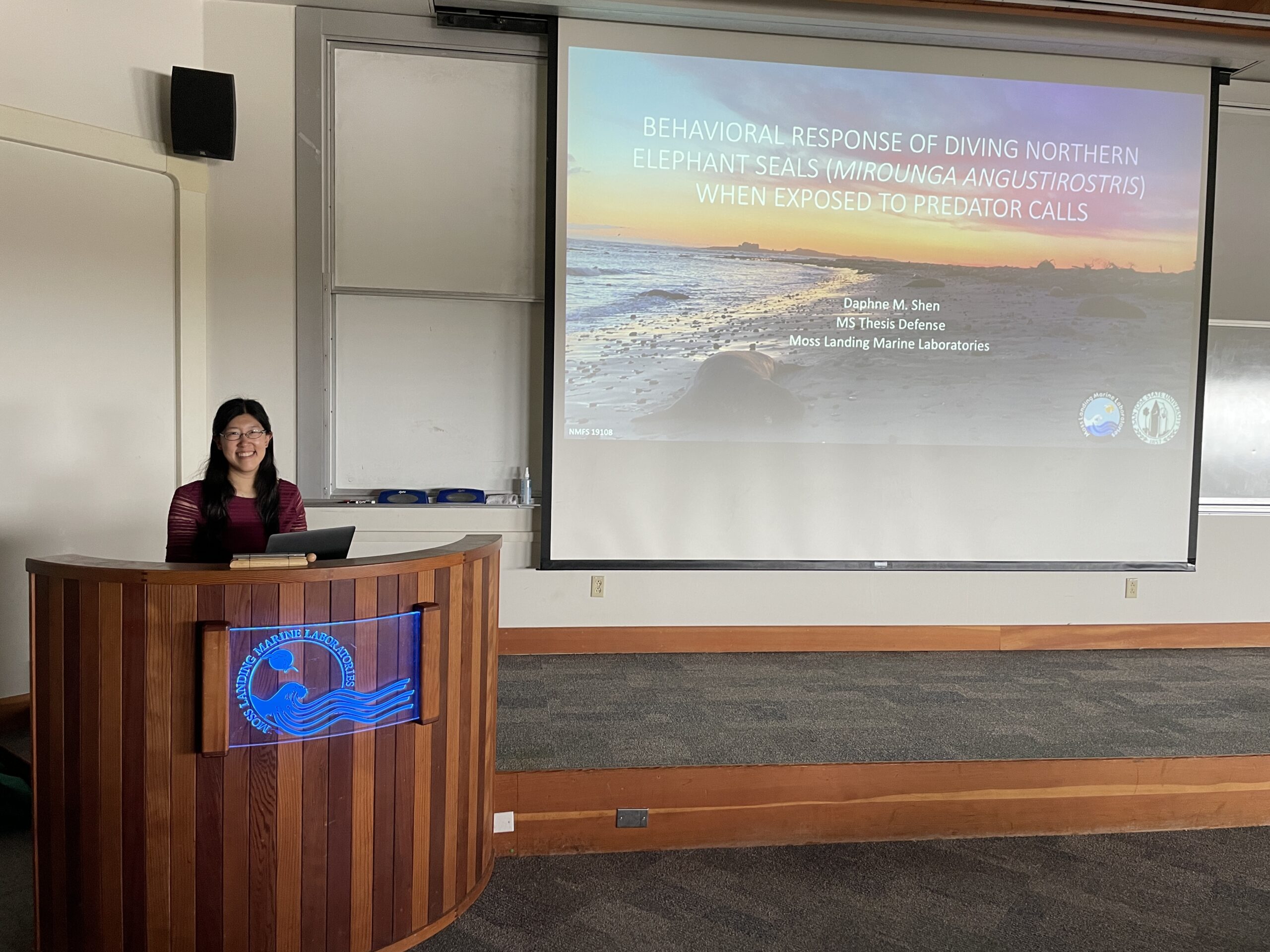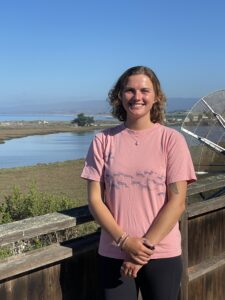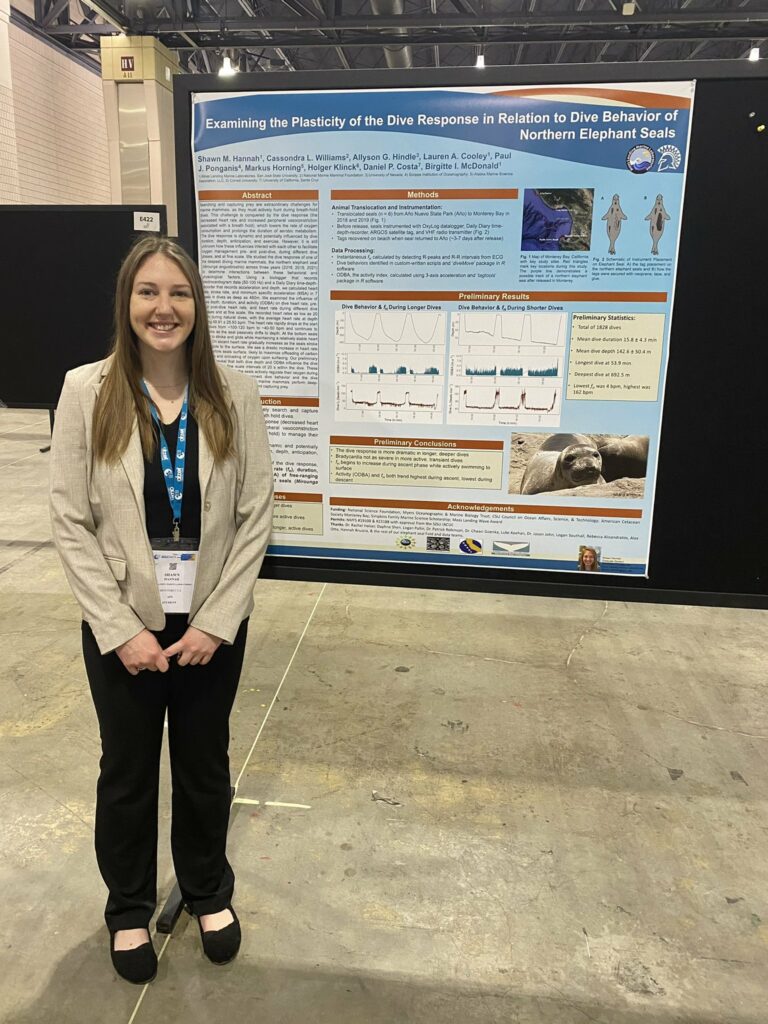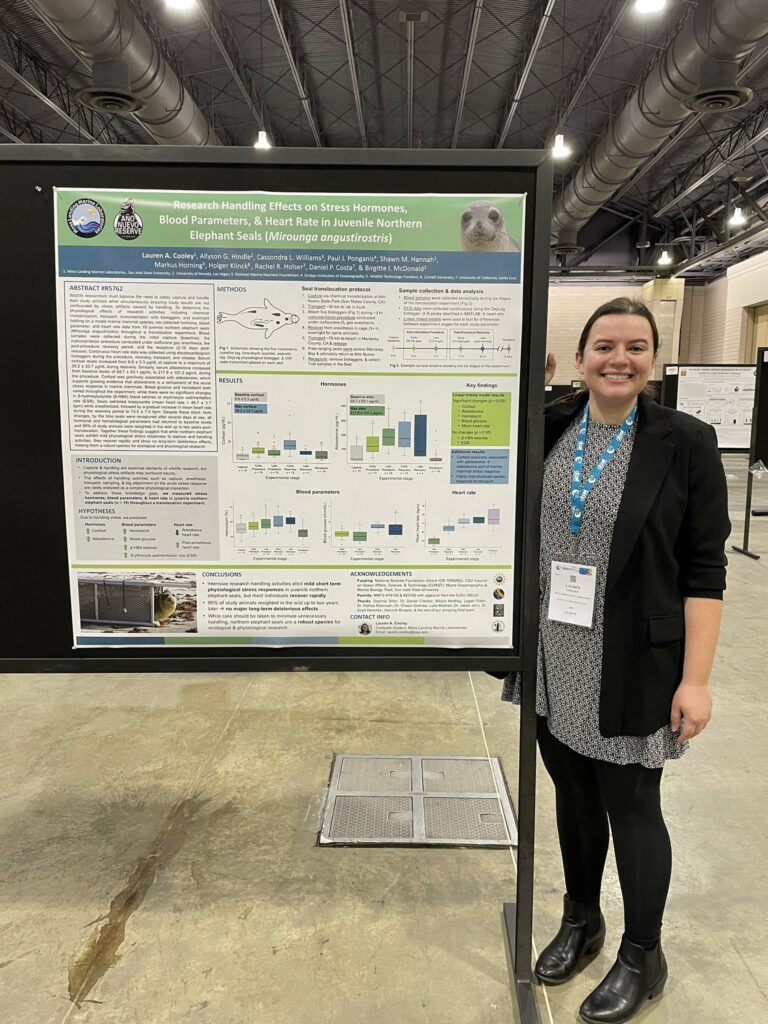We are so excited to welcome our three interns for the summer!
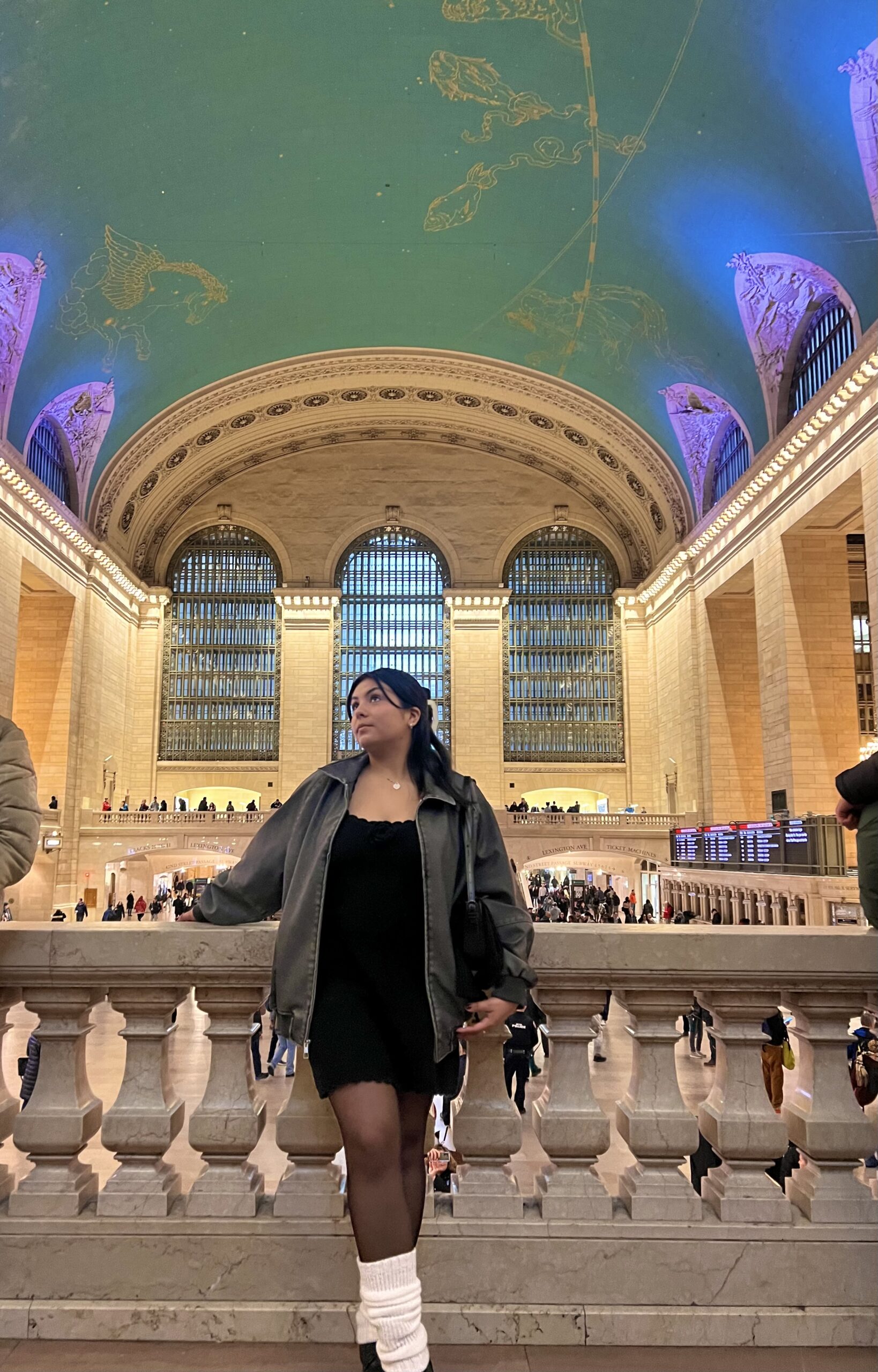
Roxane is an undergraduate student pursing a degree in Marine Sciences at San Francisco State University. She is from a small town in San Diego, where she discovered her passion for marine life. She grew up on a beach where sewage runoff affects marine life and public safety, and she hopes to work in her hometown to reduce and eliminate pollution. Roxane is currently with the 2024 Monterey Bay Ocean Sciences REU Program, working with Dr. Birgitte McDonald for the summer in the Vertebrate Ecology Lab. This summer, she will be researching Emperor Penguin dive behaviors in the Ross Sea.

Aidann is an undergraduate student, studying Marine Science at California State University, Monterey Bay. She previously attended UC Berkeley as an undergraduate Chemistry B.S major, but later transferred to the Marine Science program at CSUMB to further her education in marine biology and chemical oceanography. She is interested in deep-sea research and the impact of climate change on the marine environment. She started volunteering as an intern for the Vertebrate Ecology Lab in Spring 2024, and currently help with marine mammal stranding response, assisting with necropsies, and participating in monthly beach surveys. She is also currently working with ArcGIS Pro to create a detailed map of all strandings in Monterey County.

Mia is a current fourth year undergraduate student at Gonzaga University, pursuing her B.A. in Biology and a minor in Applied Mathematics. Her interests lie in the intersection of math and science, particularly in understanding the impact of climate change on our environment and using mathematical models to study these changes. She is excited to be part of the Vertebrate Ecology Lab this summer as an intern and part of the Monterey Bay Stranding Network team. Her responsibilities include assisting with the marine mammal response, participating in necropsies, and completing monthly beach surveys. She is also working with a graduate student on research on elephant seals and their diving behavior.



